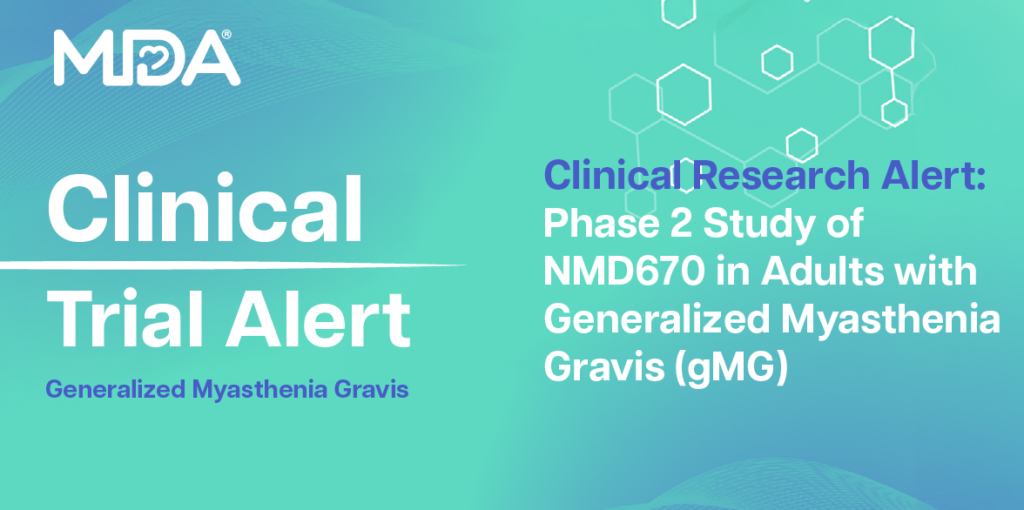
Life with Lily: Advice for Parents of Children with Neuromuscular Disease
By Lily S | Thursday, November 20, 2025
5 Second Summary
MDA Ambassadors play an essential role in furthering MDA’s mission while representing and empowering the neuromuscular disease community. Quest Ambassador Guest Blog series provides a platform to share their personal stories, perspectives, and experience.
Hello! For those of you who don’t already know me, my name is Lily and I live with Charcot-Marie-Tooth disease (CMT). While I am not a parent, these recommendations come directly from my lived experience growing up with neuromuscular disease. This blog candidly reflects what truly helped me build confidence, self-worth, and a positive identity as I navigated the world with a disability. I hope this advice helps you empower your child and navigate your own journey with neuromuscular disease.
The power of representation

Lily S.
A positive sense of self begins when children see people like themselves thriving and are able to connect with a community that understands them.
- Actively seek positive representation: Make an intentional effort to highlight disability in a positive light in media, toys, and books.
- Normalize mobility aids: Celebrate toys and characters, like a Barbie in a wheelchair or a character with orthotics, to help your child see their equipment as a normal and helpful tool.
- The goal: Cultivate a positive disability attitude by showing your child they belong to a visible, diverse, and vibrant world.
Foster deep community connection
Connecting with the disability community is life-changing, especially as children begin to understand what their diagnosis truly means.
- Peer understanding (for kids): Ensure your child has spaces where they are not “the different one.” Seek opportunities like the MDA Summer Camp and local community events to connect them with other children with disabilities.
- Adult role models: Introduce your child to adults with disabilities. Allow your child to see that all adults with disabilities can live successful and full lives!
Parent education, support, and community
Your knowledge and confidence directly support your child’s well-being and future advocacy, and you are not meant to do this alone.
- Get educated and find support: Commit to continually learning about the diagnosis and available resources. The MDA is a vast resource for tools, educational webinars, and mentorship programs.
- Find your community too (parents): Being a parent of a child with neuromuscular disease is hard and can be lonely. Find support groups for parents and caregivers. Other parents understand this journey best!
- Utilize Community Support Groups: Support groups designed for parents of children with neuromuscular disease to connect, get educated, and seek support are incredibly valuable through every stage of your journey.
- Search for online parenting advice: Look for Facebook groups or online discussion forums where parents can ask questions and get quick, practical advice from others who truly understand the day-to-day challenges of caregiving.
Supporting siblings and fostering family balance
Neuromuscular disease can and will change family dynamics.
- Educate siblings openly: Explain your child’s disease and needs to siblings in an age-appropriate way. Reiterate that these needs are just one part of who their sibling is, and that their sibling may need more help from parents, but that is okay. Embrace disability positivity and watch all of your children’s empathy and compassion grow!
- Be intentional with unaffected siblings: The needs of siblings without neuromuscular disease are equally important. Schedule dedicated, one-on-one time with each child. Ask them how they are feeling and acknowledge that their life is different because of their sibling’s condition.
- Shared family responsibility: The child with a disability should engage in appropriate chores and responsibilities and be an active part of the family structure, just like their siblings. Assign tasks that leverage their strengths (e.g., sorting laundry, reading to a younger sibling, supervising a pet) to foster independence and contribution.
Building confidence through honesty and advocacy
Open, honest discussion removes shame, builds self-trust, and equips your child to advocate for themselves.
- Embrace early and open dialogue: Initiate discussions about your child’s diagnosis and disability early and Your goal is to be disability-positive or neutral; never let shame enter the conversation.
- Encourage self-trust: Teach your child to trust their body and listen closely to their symptoms. Reinforce the fact that they know their body best and that their voice in medical and care settings is essential.
- Coach relentless advocacy: While you must be an advocate for your child, your ultimate role is to coach them to step into that role themselves, because they are their best advocate. Give your child the tools to speak up for themselves in the classroom and during 504/IEP meetings. Empower their unique voice and encourage them to take up space in every room they walk into.
Respecting their lived experience
Recognize that your role as a parent is to listen and learn from their unique perspective.
- Acknowledge your limits: Unless you have a disability, you will not fully comprehend the complexity of the disabled experience. Do not take offense if your child honestly and vulnerably says, “Mom/Dad, you just don’t get it,” because you don’t, at least from their perspective.
- Validate and learn: Humbly accept their understanding of their own experience. Listen with compassion and prioritize learning from your child and other adults with disabilities. Their experience is the ultimate authority.
A final word of encouragement
This journey is hard. There will be challenges, uncertainty, and moments that test your strength. But know this: it is so worth it, and it is beautiful. You are not alone. There are so many resources available, and the community you will find is one of the most incredible parts of this journey. Your child will grow up with resilience, empathy, and wisdom forged by their unique life experience. Keep advocating, keep loving, and keep connecting. You are doing an amazing job.
Next Steps and Useful Resources
- Read more about your 2024 National Ambassador, Lily, here.
- Read more about Lily’s Advocacy and her Passions.
- For more information about Charcot-Marie-Tooth disease (CMT), a full list of symptoms and causes can be found here.
- MDA’s Resource Center provides support, guidance, and resources for patients and families, including information about exon skipping therapies, open clinical trials, and other services. Contact the MDA Resource Center at 1-833-ASK-MDA1 or ResourceCenter@mdausa.org.
- To learn more about MDA’s Young Adult Programs, visit here.
- Stay up-to-date on Quest content! Subscribe to Quest Magazine and Newsletter.
Disclaimer: No content on this site should ever be used as a substitute for direct medical advice from your doctor or other qualified clinician.




